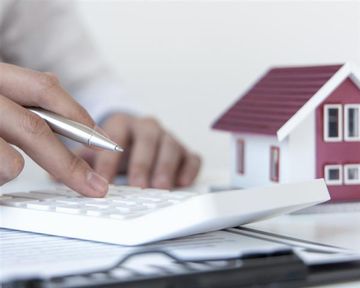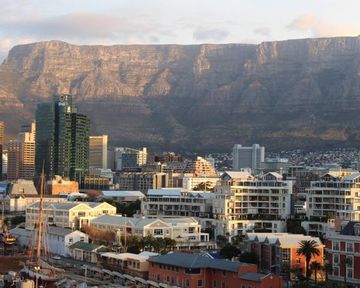8 Costs that landlords often underestimate
Investing in rental properties can be a lucrative venture, but landlords need to set realistic expectations and account for all potential expenses before taking the plunge. While rental income can provide a steady stream of cash flow, many landlords underestimate the true cost of property ownership, and this can put a significant dent in returns or even result in financial loss.
Being a landlord comes with its fair share of responsibilities and expenses. While some costs may be obvious and easy to track, there are certain expenses that landlords often overlook or underestimate. Accurate budgeting from the get-go is paramount as it ensures investors understand the full financial picture and prevents unexpected expenses from derailing investment plans. Landlords must carefully consider and budget for all potential expenses when setting expectations for their rental properties. Thorough budgeting also enables investors to set realistic expectations, make informed decisions, and maximize returns on their investment.
The following costs are those which are most commonly underestimated or even overlooked by landlords:
1. Property Maintenance and Repairs
Repairs are a significant expense that is often underestimated or overlooked. Although some repairs are quick and easy fixes like a leaking tap, many are costly and can break the bank if realistic repair costs haven’t been factored in. Landlords must also budget for ongoing maintenance and repairs to keep their properties in good condition. From routine upkeep like landscaping and cleaning out gutters to unexpected repairs such as plumbing leaks or appliance failures, these expenses can quickly add up and eat into rental profits.
To help keep big maintenance and repair costs at a minimum, landlords can implement a maintenance schedule that will allow them to take of the minor issues before they become major issues.
Here is a list of things you can do on a regular basis:
- Inspect and Clean Gutters: Regularly remove debris to prevent water damage.
- Inspect Plumbing: Check for leaks, drips, and signs of water damage.
- Service Appliances: Clean and check the functionality of all appliances provided with the rental.
- Inspect Roof and Exterior: Look for signs of damage or wear and address any issues promptly.
- Check for Pest Infestations: Regularly inspect for signs of pests and address any issues quickly.
- Repaint and Touch Up Walls: Refresh paint as needed to maintain a clean and inviting appearance.
- Check Windows and Doors: Ensure all windows and doors are sealing properly and functioning correctly.
2. Tenant Turnover and Vacancy Loss
Vacancy periods between tenants can result in significant income loss for landlords. Many landlords underestimate the time it takes to find new tenants and the associated costs of advertising, screening applicants, and preparing the property for rent. Every day your property is vacant, it still costs you the same as when there is a tenant, so it's essential to budget for potential vacancy periods to avoid financial strain during downtime.
The key to retaining your tenants is by keeping them happy. We put together a guide on tenant retention here
3. Poor Quality Tenants
Having poor-quality tenants can be costly to your rental business as they not only cause stress but can put your business at risk of financial losses. Problematic tenants may not pay rent on time, which can disrupt your business’ cash flow. They may also cause damage to the property through negligent behavior, which will ultimately increase your maintenance and repair expenses.
To ensure you get the most from your rental property, you should be screening your tenants thoroughly. Here are some things to keep in mind when screening a tenant:
- Get to know your potential tenant: Find out there monthly income, how many people will be living in the unit, if they have any pets and ask for reference from previous landlords
- Provide them with a rental application and do a credit check: Potential tenants need to fill out a rental application where they provide information like their name, contact details, employment history, rental history and so forth. Once you have all the information you can do a credit check to give you a clearer picture of their financial health and assess the risk you will be taking when allowing them to move into your unit.
Here are more questions a landlord should ask their potential tenant
4. Property Management Fees
Hiring an agency to manage your property is recommended for many reasons, including the fact that they can properly vet prospective tenants and have a thorough understanding of the regulations pertaining to this sector. However, landlords often overlook the cost of these services when doing their sums. Property management fees typically range from 8% to 12% of monthly rental income, depending on the level of service provided.
5. Utilities and Property Taxes
While tenants may be responsible for paying some utilities, landlords often underestimate the cost of utilities not covered by tenants, such as sewer and trash collection services. Additionally, property taxes can vary widely depending on location and property value - and increases can sometimes be hefty - so landlords must account for these expenses when setting rental rates.
6. Legal Fees and Eviction Costs
Landlords may encounter legal issues related to tenant disputes, lease violations, or evictions, which can result in significant legal fees and court costs. Many landlords underestimate the potential cost of legal proceedings and eviction processes, so it's crucial to budget for these expenses and consult with legal professionals when necessary.
Here is a guide on handling evictions
7. Capital Expenditures
Landlords often overlook the need for capital expenditures to replace or upgrade major components of their properties, such as roofing or window frames. These expenses are essential for maintaining the long-term value and functionality of the property but can be substantial and unpredictable.
8. Neighbourhood Changes
When you bought the property, it was a clean, safe neighborhood, but over the years, unfortunately, the suburb has become a bit run down and crime has escalated. This will impact not only the appreciation of your investment but also the rental return. Being aware of changes in the neighborhood and their potential impact on your property is crucial for long-term planning and financial forecasting.
By understanding and planning for these often-underestimated costs, landlords can set more realistic expectations, make more informed investment decisions, and ultimately achieve greater financial success in their rental property ventures.

